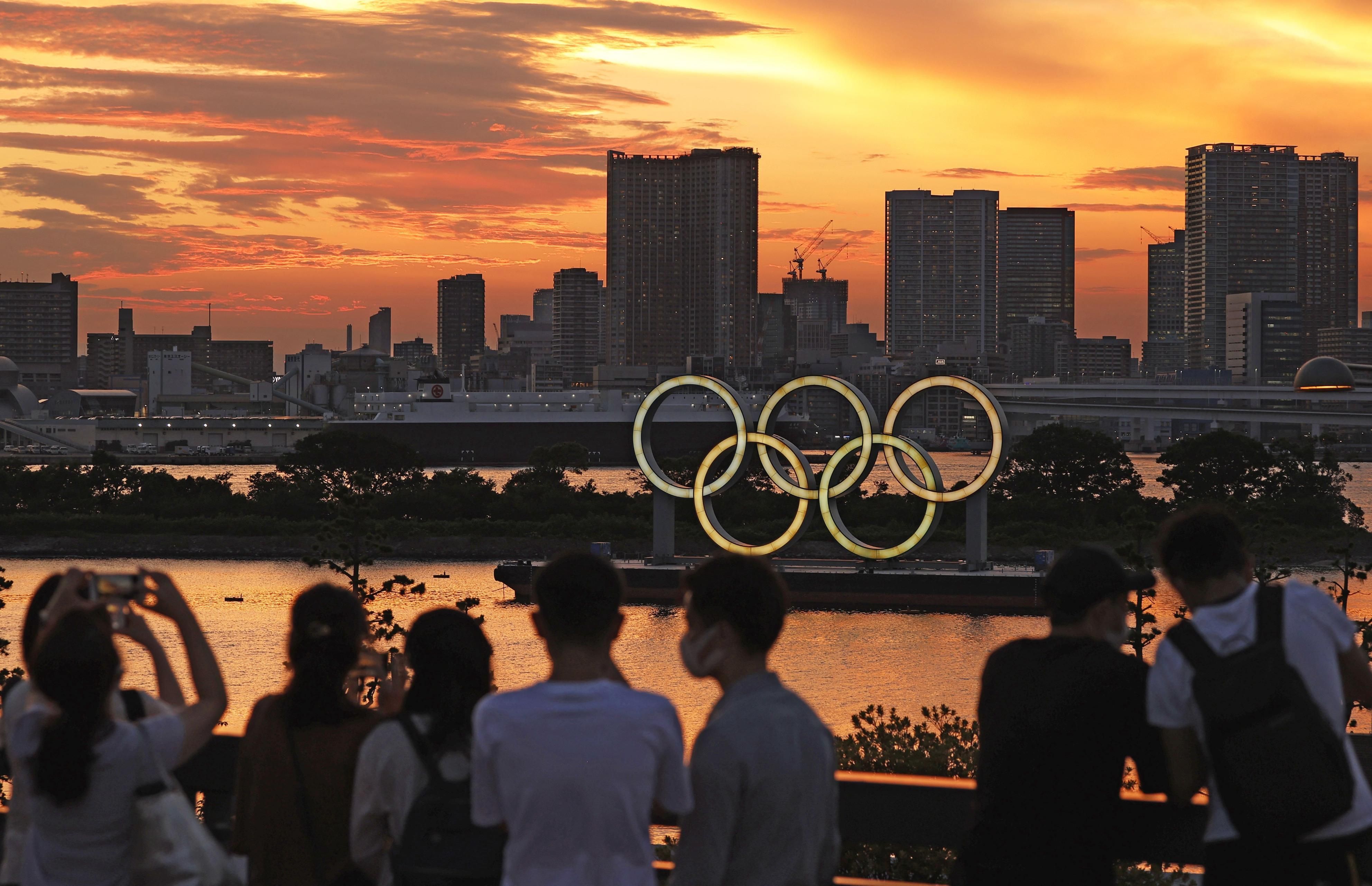July 21, 2021
Tokyo last hosted the summer Olympics in 1964, when Japan was still trying to restore its tarnished image after World War II. The Games went off swimmingly, and Japan raked in praise.
Indeed, Tokyo was hoping that the 2020 Olympics would be another 1964. But since COVID entered the scene, everything that could have gone wrong has gone wrong.
The Olympics that no one wants have so far been crippled by a series of crises and controversies that have overshadowed the sporting events. Here's a look at where things currently stand.
COVID outbreaks and vaccinations. Tallying the number of new COVID infections inside the Olympic Village has become a sport in and of itself. Since participants started arriving earlier this month, more than 70 people at the Tokyo Olympic Village have tested positive. Athletes who have spent years training for the event, like US tennis superstar Coco Gauff, have been forced to pull out, shattering dreams years in the making.
When Dick Pound — a longtime member of the International Olympic Committee — was asked recently what keeps him up at night, he said, unequivocally: a massive COVID outbreak at the Tokyo Games. For now, athletes who test positive are isolated and required to quarantine for 14 days. But how many cases would be enough to force a cancellation? What if infections spread to local communities? No one at the IOC seems to have answers to these questions.
Some observers say that a vaccine mandate would have circumvented the problem. But the IOC lacks the authority to enforce such a scheme, and the Japanese government — for a variety of political and economic reasons — opted not to. Moreover, many low- and middle-income countries, particularly in Africa, would have struggled to secure enough doses for their full teams to compete because their vaccine supplies remain low.
Japan's tough choice. Yoshihide Suga, Japan's prime minister, is not a popular man. For months, Suga has insisted that the show must go on despite more than 62 percent of Japanese opposing it, fearing the Games will be a super-spreader event for the dominant delta COVID variant. He is now hemorrhaging support, recording a net approval rating of -34. Indeed, survey after survey shows that the Olympics has been a massive factor behind the ruling Liberal Democratic Party cratering support ahead of national elections to be held this fall.
But the Japanese government has been caught between a rock and a hard place when trying to balance its economic commitments with public health concerns. Holding the Games without spectators is a massive blow to the country's beleaguered tourism sector (one Japanese professor estimates that the country stands to lose up to $23 billion). Still, the Japanese government was likely hoping that the events would spark some income-stimulating activities from the tens of thousands of athletes, coaches, support staff, film crews, and reporters who are flying in.
And Suga, for his part, probably hopes that pulling off a successful Olympics will help prop up his popularity ahead of an LDP leadership vote in September, as well as general elections, which have to take place by October 22. But, for now, that strategy appears to have blown up in the PM's face: one government official recently said that he was "not expecting any [economic] effect" from the Olympics at all.
A new rulebook for activism. This will be the first Olympics to take place since the 2020 killing of George Floyd in the US, which sparked a global reckoning with racism. Symbolic protest, particularly at large cultural and sporting events, has become a key part of the racial justice movement's modus operandi. The IOC has responded to the emotionally-charged moment by relaxing its rules on athletes expressing their political views (like kneeling before a game or wearing symbolic clothing) so long as they don't interfere with the competitions or official ceremonies.
While some critics say this is a tokenistic gesture and doesn't go far enough in allowing freedom of political expression, the IOC says this actually reflects most athletes' preferences. Regardless, trying to redefine the complex relationship between sports and politics at a time of heightened global sensitivity to race relations comes at the worst possible time for both racial justice advocates, who'll be protesting in empty stadiums, and for the IOC, which can no longer afford to straddle on such a fraught issue, especially for young fans.
There is, however, a sizable cohort that wants the Games to proceed: athletes. Participants from some 200 countries have spent years training for these Olympics, and recent disruptions have dealt a devastating blow to them and their support teams. For them, the stakes of the Tokyo Games are very, very high.
More For You
Bad Bunny during the Super Bowl LX halftime show press conference at Moscone Center.
Kirby Lee-Imagn Images
100 million: The number of people expected to watch the Super Bowl halftime performance with Bad Bunny, the Puerto Rican superstar and newly minted Album of the Year winner at the Grammys.
Most Popular
Think you know what's going on around the world? Here's your chance to prove it.
- YouTube
An imminent US airstrike on iran is not only possible, it's probable.
Americans are moving less — and renting more. Cooling migration and rising vacancy rates, especially across the Sunbelt, have flattened rent growth and given renters new leverage. For many lower-income households, that relief is beginning to show up in discretionary spending. Explore what's changing in US housing by subscribing to Bank of America Institute.
© 2025 GZERO Media. All Rights Reserved | A Eurasia Group media company.
